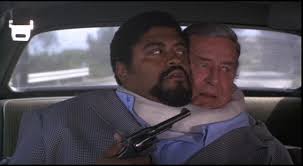A few more thoughts on autonomous vehicles, these from economist Tim Harford at the Financial Times. One thing in his article I didn’t know about is that Germany has been road-testing robocars for two decades. The opening:
“Last Wednesday Vince Cable, the UK business secretary, invited British cities to express their interest in being used as testing grounds for driverless cars. The hope is that the UK will gain an edge in this promising new industry. (German autonomous cars were being tested on German, French and Danish public roads 20 years ago, so the time is surely ripe for the UK to leap into a position of technological leadership.)
On Tuesday, a very different motoring story was in the news. Mark Slater, a lorry driver, was convicted of murdering Trevor Allen. He had lost his temper and deliberately driven a 17 tonne lorry over Mr Allen’s head. It is a striking juxtaposition.
The idea of cars that drive themselves is unsettling, but with drivers like Slater at large, the age of the driverless car cannot come quickly enough.
But the question of how safe robotic cars are, or might become, is rather different from the question of the risks of a computer-guided car are perceived, and how they might be repackaged by regulators, insurers and the courts.
On the first question, it is highly likely that a computer will one day do a better, safer, more courteous job of driving than you can. It is too early to be certain of that, because serious accidents are rare. An early benchmark for Google’s famous driverless car programme was to complete 100,000 miles driving on public roads – but American drivers in general only kill someone every 100m miles.
Still, the safety record so far seems good, and computers have some obvious advantages. They do not get tired, drunk or angry. They are absurdly patient in the face of wobbly cyclists, learner drivers and road hogs.
But there are bound to be hiccups.”
Tags: Tim Harford

